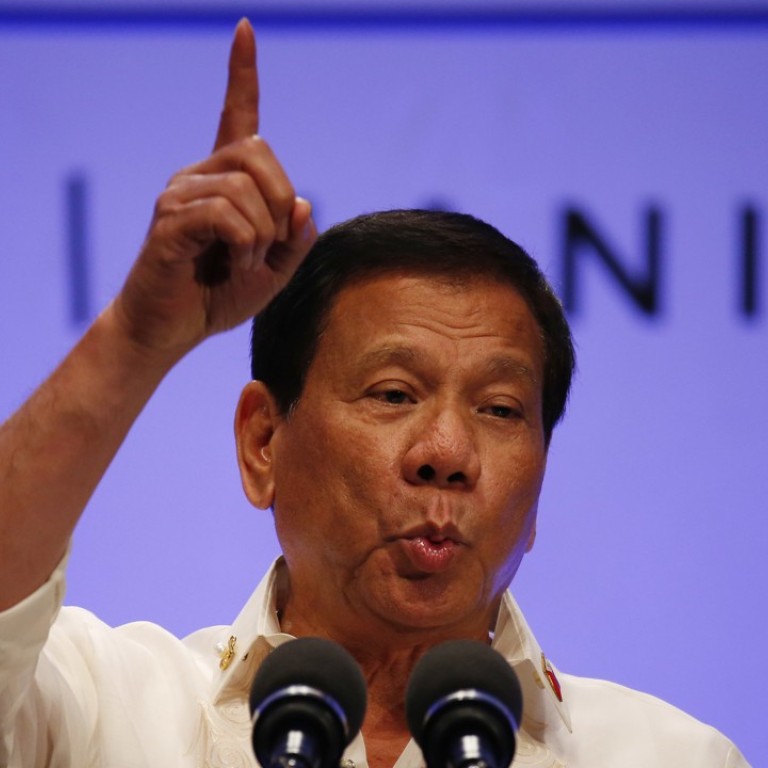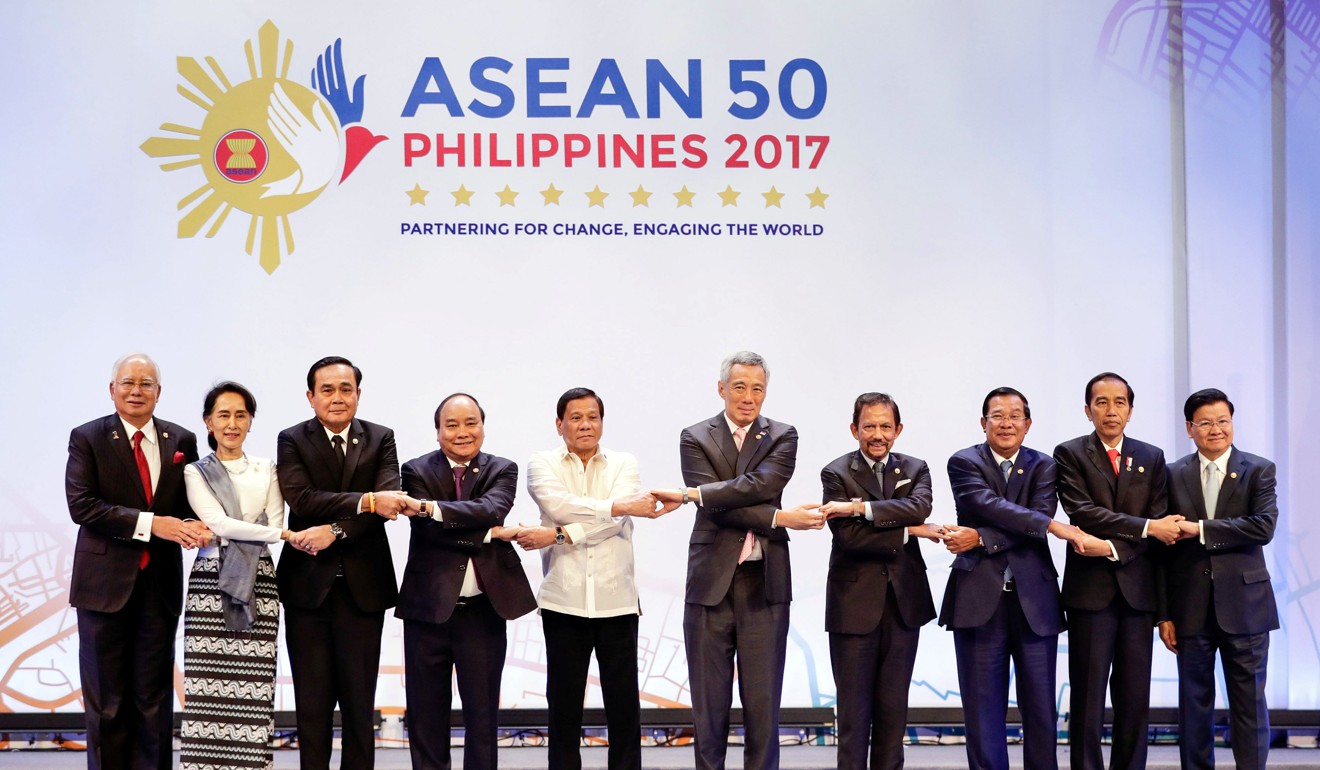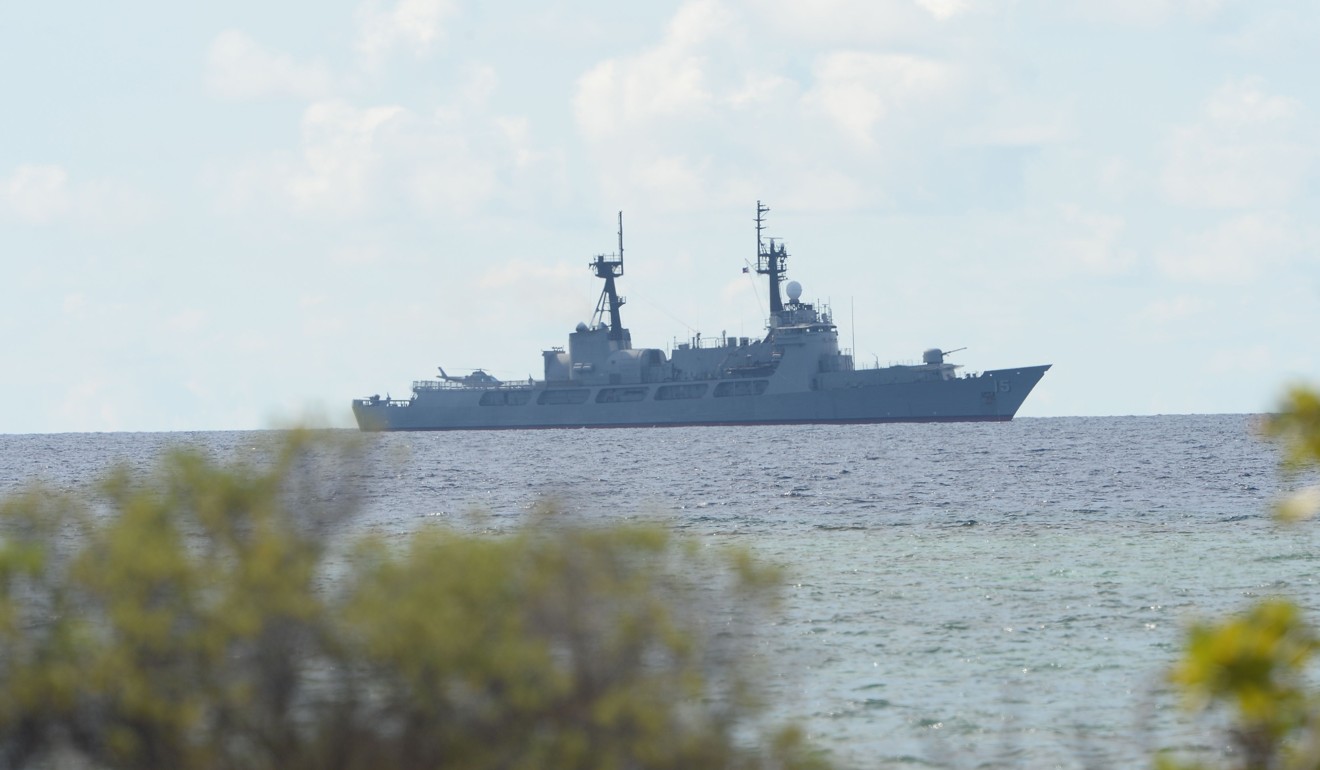
Opinion: Duterte seeks to play dealmaker in South China Sea disputes
The brash Philippine leader likely will use his chairmanship of the Association of Southeast Asian Nations to wrest concessions from China during this month’s meeting with China’s president
The Philippines’ controversial leader, Rodrigo Duterte, got his first crack at global leadership by chairing the recently concluded Association of Southeast Asian Nations (Asean) summit in Manila late last month.
During the three-day mega-event, the Filipino president suavely hosted his fellow Southeast Asian leaders, who came to celebrate the 50th anniversary of the regional body’s founding. Southeast Asian leaders discussed a range of key challenges facing the region, from terrorism to transnational crime and territorial disputes in the South China Sea.
Duterte wasted no chance to use his rotational chairmanship of the Asean to defend his controversial war on drugs, which has come under heavy criticism from Western powers and international media.
“[R]elations [with Dialogue Partners] can be made more productive and constructive if the valued principle of non-interference in the internal affairs of Asean Member States is observed,” he said. The remarks were aimed, unmistakably, at foreign powers that have been critical of Duterte’s human rights record.
This emerging transactional approach is part of Duterte’s ‘art of the deal’ vis-à-vis the South China Sea disputes.
Standing before a largely sympathetic audience composed mostly of autocratic leaders with sketchy human rights records, the Filipino president called upon Western powers to “learn to respect” Asean nations and treat them as “sovereign equals”.
Just days earlier, human rights lawyer Jude Sabio sought to initiate a criminal case at the International Criminal Court against Duterte, accusing him of committing crimes against humanity. The European Union – and potentially even the United States – is expected to scale back economic aid to, and adopt punitive sanctions against, Manila, including raising tariff rates on Philippine exports.
Yet, Duterte stood his ground and even promoted his signature war on drugs, which has struck a chord across the region. During the summit, Brunei’s Sultan Haji Hassanal Bolkiah pushed for closer bilateral cooperation. Months earlier, Indonesian police chief Budi Waseso openly suggested a Duterte-style approach to the drug menace in his country.
Several Southeast Asian countries, especially the Philippines, Indonesia and Malaysia, are also deeply worried about the prospects of the establishment of a “distant caliphate” by the regional affiliates of the so-called Islamic State. The Mindanao-based Abu Sayyaf group, in particular, has rapidly expanded its geographical reach – as well as kidnapping and ransom operations – in maritime Southeast Asia’s porous borders.

During the summit, member states agreed to step up their joint effort to combat transnational crime as well as terrorism. The highlight of the summit, however, was the constant back-and-forth negotiations over the Asean’s stance on the South China Sea disputes, which has pitted China against several member states, particularly Vietnam, Malaysia and the Philippines.
Months earlier, former Philippine foreign secretary Perfecto Yasay threatened to disrupt increasingly warm relations between Duterte and China by claiming that several regional states mentioned the Philippines’ arbitration case as a potential agenda for Asean.
In particular, some senior officials, especially in the Philippines, have suggested that the arbitration award could be used as a reference point for drafting a legally binding code of conduct in the South China Sea.
During the summit, Indonesian President Joko Widodo urged the Asean to “solve [the disputes] immediately” and come up with a “common stand” on the issue. But true to his earlier promise, Duterte refused to raise the Philippines’ landmark arbitration case against China, which boycotted the legal proceedings and flatly rejected the final award.

More surprisingly, however, Duterte vetoed proposals by some regional states, particularly Vietnam, to mention China’s reclamation activities and the increasing militarisation of the maritime disputes.
The term “serious concern”, which repeatedly appeared in previous Asean statements, was also dropped from the final statement. By all measures, this was a slam-dunk diplomatic victory for China, which prefers to manage the disputes on a bilateral, rather than multilateral, basis.
“Your president has defined the outcome … already,” a dispirited diplomat, likely from Vietnam, told the Philippine media. “Some are frustrated over the turn of events.” A visibly frustrated Filipino diplomat complained how his country ended up “being lumped together with Cambodia and Laos in protecting Chinese interests [in Asean] at all costs”.
The Filipino leader, however, promised to finalise a framework of a code of conduct before the end of the year. Still, he came under a flurry of criticism at home and abroad for taking a soft position on the South China Sea disputes, much to the delight of China.
In all likelihood, timing and national interest played a key role in shaping Duterte’s position as the chairman of Asean. Since he is scheduled to meet Chinese President Xi Jinping this month for the Belt and Road Initiative summit, the Filipino president was more than eager to avoid any diplomatic conflict with Beijing.
During his meeting with Xi, Duterte will likely seek concessions in exchange for preventing Asean from adopting a tough and robust position on the South China Sea disputes. He could not only ask for larger Chinese infrastructure investments, especially in his home island of Mindanao, but also negotiate a modus vivendi, which will allow Filipino fishermen and military to gain unimpeded access to disputed land features and resources. This emerging transactional approach is part of Duterte’s “art of the deal” vis-à-vis the South China Sea disputes.
Richard Heydarian is a Manila-based academic and author of Asia’s New Battlefield: US, China & the Struggle for Western Pacific

